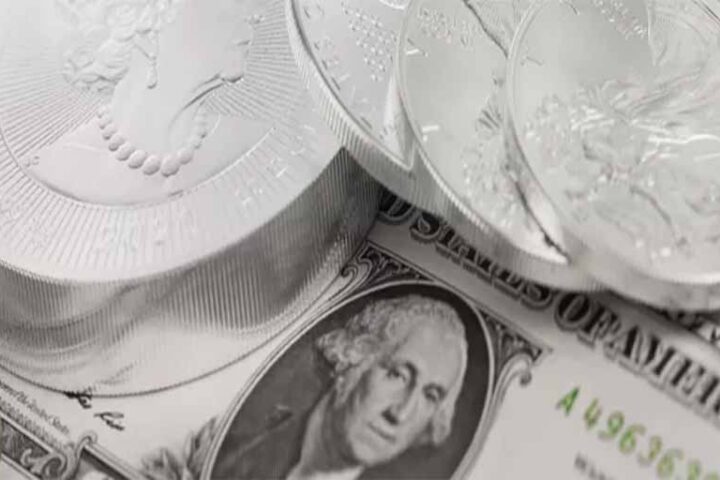Consumers have been told to brace for a ‘perfect storm’ on prices of essential goods, particularly food and fresh produce, as an increase in demand following the pandemic, rough weather conditions and the war in Ukraine will be taking a bigger bite from their wallets.
The head of the Cyprus Retailers Association (PASYLE), Marios Antoniou, said he was concerned that the sector, and consumers, are headed for stormy weather as food prices could increase by up to 25% next week.
In comments to state television CyBC, Antoniou argued that a hike in prices will be further boosted by the war in Ukraine, the consequences of which have yet to bite.
“The consequences of the war in Ukraine and sanctions on Russia have yet to be fully reflected on the market. Until today, we have seen an average increase on prices of 3% to 4%. As of next week, this increase will reach 20% across the board,” said Antoniou.
The retailers’ representative said that the price of pork has already seen a 10% increase, while come next week, the price will increase by a further 10%.
Antoniou said that would make up for a total 20% increase in the price of pork, while lamb is expected to go up by 13%.
“Chicken, which makes up for 30% of Cypriots’ meat preference, will see prices go up by 25%,” he said, with a shortage in grain following the war and sanctions on Russia. Russia and Ukraine are responsible for a third of the world’s supply in grain and barley.
He explained the shortage of wheat and barley has pushed up animal feed, which in turn increased the cost of breeding.
Asked to comment on the price of produce, Antoniou said that the cold and stormy weather in recent days, with snow falling on the inland has added the final element to the ‘perfect storm’.
“Wintery conditions prevailing in March have worsened the market conditions, adding to the adverse effects of the coronavirus pandemic, which has yet to bid farewell, and the war in Ukraine. Hail, and snow have damaged crops, putting pressure on supply,” said Antoniou.
Andreas Hadjiadamou, representing the Cyprus Supermarket Association, said that consumers should not panic at the sound of increases, noting that a fierce competition between supermarkets would break spiralling prices.
Market forces
“A fierce market competition when it comes to grocery shopping, will be working in consumers’ favour keeping prices lower than increases discussed,” he noted.
“No one is saying that there will not be any increases. But we feel that competition in the market will regulate the market, keeping prices as low as possible” he said.
He further argued that the supermarkets are the only retail sector that has proven to be more sensitive to consumers’ needs.
“We have done so in the past with other crises, including the coronavirus pandemic,” argued the supermarkets’ representative.
The head of the Cyprus Consumers Association, Marios Drousiotis, said that prices of bread products will also be going up by 10%, due to a 20% rise in the cost of flour.
“Dining out or buying ready-made food from the neighbourhood’s rotisserie will cost at least 20% more. We know that restaurants are paying an additional 50 cents for every chicken,” said Drousiotis.
He added that frying oil used by restaurants has gone up by 60% in recent days, which will also be having an impact on prices of ready-made food.
Petrol prices
The head of the consumers’ association also touched upon the recent increase in petrol prices which saw prices at the pump rise drastically, doing away with a tax cut handed out by the government earlier last week.
Last week’s price cut saw diesel and petrol reduced by 7 cents a litre, or 8.3c a litre including VAT, and a reduction of 6.4c a litre, including VAT, for heating oil.
As a result, the average selling price at petrol pumps for 95 octane petrol was EUR 1.374 a litre and EUR 1.428 for diesel.
This week, increases saw 95 octane go up by 7c and diesel by a whopping 27c.
According to the Finance Ministry’s fuel price observatory, the average price of 95 octane petrol was EUR 1.409 per litre, while diesel was sold at an average EUR 1.681. The most expensive price for a litre of diesel was EUR 1.75 at a petrol station in Limassol.
Drousiotis said that fuel companies have yet to give an explanation on the 27-cent increase on diesel.
“This is the first time that a fuel product’s price has increased so much, independently from increases on other petrol products. We demanded an explanation from both petrol companies and the government, but no one could tell why diesel has skyrocketed, while other petrol products recorded a much smaller increase,” said Drousiotis.
He argued that there is no transparency when it comes to prices at the pump.
“Petrol companies do not announce when they receive new fuel shipments, nor do they announce the price at which they buy them,” he argued.
The Consumers’ Association has also been firing at petrol station owners, saying that the real reduction imposed last week, following the tax cut, was smaller than the fuel tax reduction decided by the government.
A spot of good news
On a more positive note, the Petrol Station Owners’ Association said that Cyprus motorists will be given a respite in the next eight to ten days, as fuel shipments to be bought at much lower prices than the previous ones should soon be on their way.
Savvas Prokopiou, the president of the association told the Financial Mirror that petrol stations received deliveries every 15 days with prices being adjusted upon arrival.
He estimated that the reduction could well be between 10 to 15 cents, without wanting to commit the association, as he argued international fuel prices could once more be affected by the war in Ukraine and sanctions on Russia.










